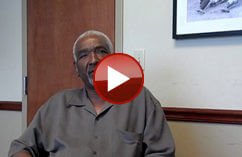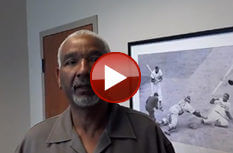Chattanooga Religious Discrimination Lawyer
According to Chattanooga discrimination law, religious discrimination in the workplace is the mistreatment of an employee based upon the person’s religious beliefs. This discrimination can include being subject to differential pay, not receiving promotional opportunities, being subject to unjust hiring or firing practices, and being subject to name calling and other malicious acts.
If you believe that you have been a victim of religious discrimination in the workplace, contact a Chattanooga religious discrimination lawyer. A skilled workplace discrimination attorney could help you defend your rights.
Companies’ Duty to Accommodate Religious Needa
The religious discrimination laws require companies to provide reasonable accommodations that allow an employee to perform their job as well as practice their religion. If an employee approaches their employer and asks to be able to have an accommodation that meets their specific religious needs, an employer is obligated to consider that obligation.
The employer will only be allowed to refuse the requested accommodation if it would pose an immense burden on them to create the accommodation. If the employer cannot show that there is a legitimate burden in creating the accommodation, they cannot refuse their employee. If they do, a Chattanooga religious discrimination lawyers could help employees bring a case forward.
Widely Known Organized Religions vs Lesser-Known Organized Religions
Chattanooga religious discrimination lawyers can confirm that there is no difference between the religious discrimination laws for widely known organized religions and lesser-known organized religions. The emphasis focuses solely on whether the religious belief is sincerely held by the individual. The employee holds the responsibility of proving that their religious belief is sincerely held.
What Should an Employee Do to Ensure That All of Their Accommodation Needs Are Met?
Chattanooga religious discrimination lawyers are aware that in order for an employee to ensure that their religious accommodation needs are met, they should aim to do the following:
- Be clear about their religious accommodation needs
- Illustrate the relationship between their accommodation and religion
- Review employee handbook to ensure they are following employer’s policies
- Review employee handbook on workplace discrimination
- Document conversations pertaining to requesting religious accommodation
All of these factors will help streamline the accommodation process for the employee.
When Religious Dress Codes Contrast With Company-Wide Dress Codes
An employer must have a substantial reason for enforcing a company-wide dress code that overrides religious dress codes. If the employer is able to prove that an employee not adhering to the company-wide dress code will affect their business; the employer may have enough cause to deny the employee that accommodation.
What is Undue Hardship?
Undue hardship is defined as “an action requiring significant difficulty or expense”. If an employee asks their employer for religious accommodation, their employer will only be allowed to refuse the requested accommodation if it would pose an immense burden on them to implement. If the employer cannot show that there is a legitimate burden in creating the accommodation, they cannot refuse their employee. If they do, Chattanooga religious discrimination lawyers could help employees bring a case forward.
Consulting a Chattanooga Religious Discrimination Attorney
If you have been a victim of workplace harassment based on your religion, a Chattanooga religious discrimination lawyer can help you file a discrimination case. A religious discrimination lawyer can walk through your experience with you, educate you on your workplace rights, and help you determine how you can proceed with your case, and emerge with a favorable outcome.














